Civil War Ending Explained: The Shocking Moments That Concluded Alex Garland's War Story And How They May Spark Debate Among Moviegoers
It's time to discuss what kind of an ending this is.
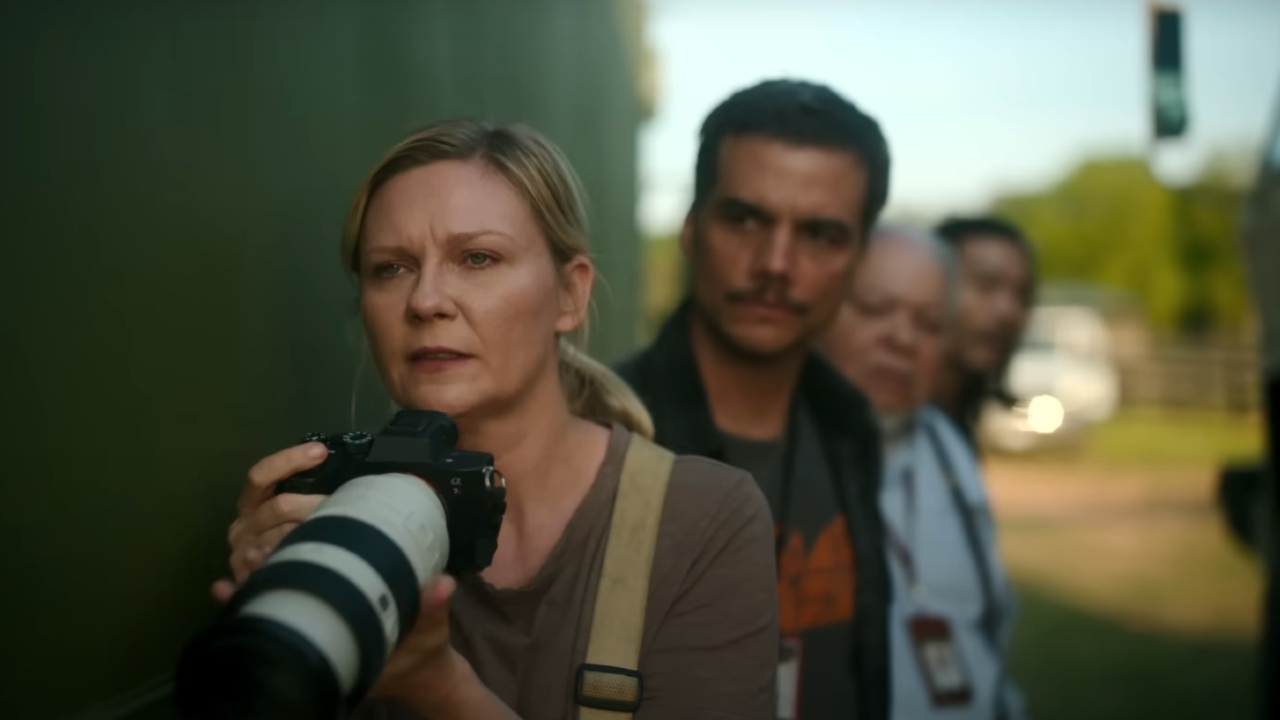
Warning: MASSIVE SPOILERS for Alex Garland’s Civil War are in play. It doesn’t matter what type of American you are, but there are some pretty revealing details ahead.
Some pictures are just made to spark conversation, and writer/director Alex Garland’s Civil War absolutely fits that bill. The 2024 movie is the latest from the man who gave us equally debatable conclusions through the ending to Ex Machina and Annihilation, as well as 28 Days Later’s various endings.
However, the discussion that this Kirsten Dunst-led ensemble thriller is bound to ignite isn’t a case of figuring out what happened, but rather over how to interpret two huge events that transpire. If you’d like to read more about the film in a spoiler-free context, you can check out our Civil War review. Otherwise, it’s time to embed ourselves with the Western Forces, and dig deep into what happened and why it matters.
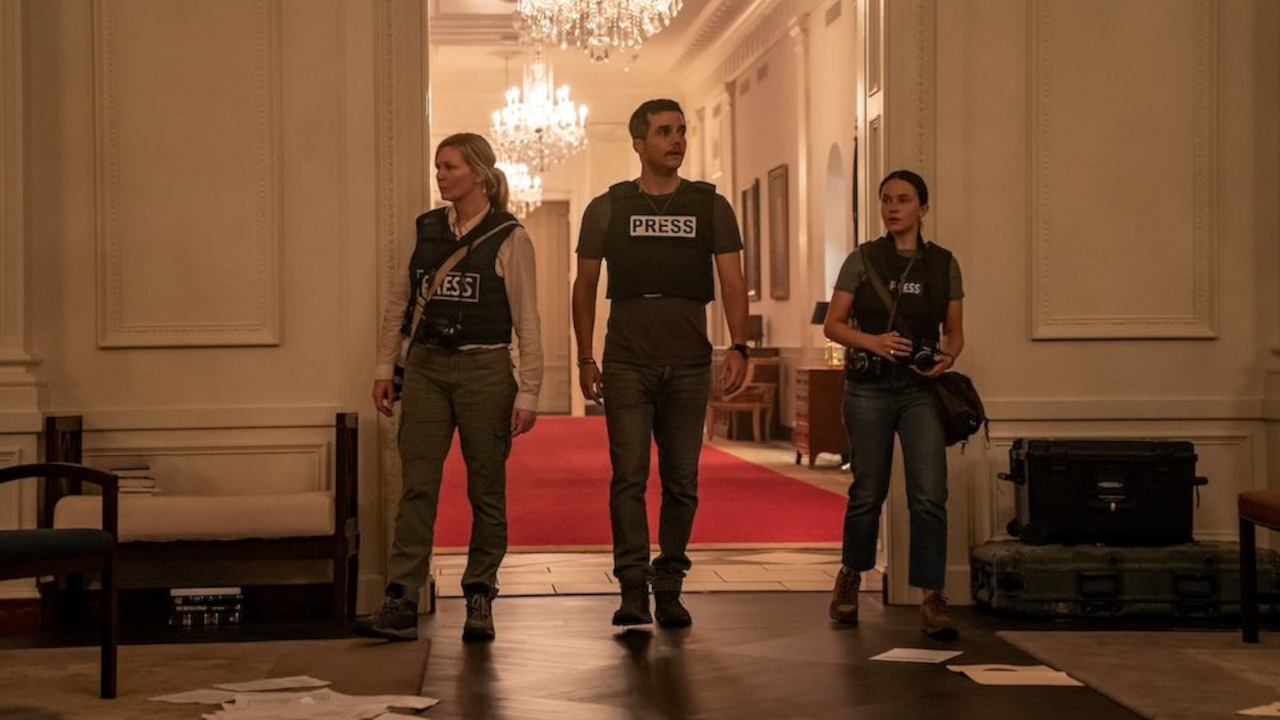
Civil War’s Shocking 1, 2 Punch Finale
The entire third act of Civil War is a greased rail of adrenaline, and it’s part of why I continue to urge people to see the film in IMAX. But no matter what format you choose, the siege of Washington D.C. contains two powerful deaths, with very different discussions behind them. The first of which is the moment where Lee (Kirsten Dunst) sacrifices her life to save Jessie (Cailee Spaeny) from being gunned down by loyal Secret Service agents.
Not too long after that shocking death lands, complete with an extended shot of haunting composition that places the dead Lee next to Jessie on the White House floor, the action picks back up. In the final moments of Civil War, the Western Forces soldiers that have stormed the White House seize the President (Nick Offerman), with orders to kill on sight. Which, to be fair, is a moment we partially see in the first Civil War trailer, just with less context into why that moment is so important.
What's so shocking about it is that before this execution is carried out, fellow journalist Joel (Wagner Moura) is determined to get the story his group was headed to DC to capture in the first place. Asking the unnamed commander-in-chief for a quote, the President pleas for his life. Satisfied with getting the story, Joel lets the Western Forces team take out the tyrannical leader, ending Civil War with a trophy photo taken with the troops over his dead body.
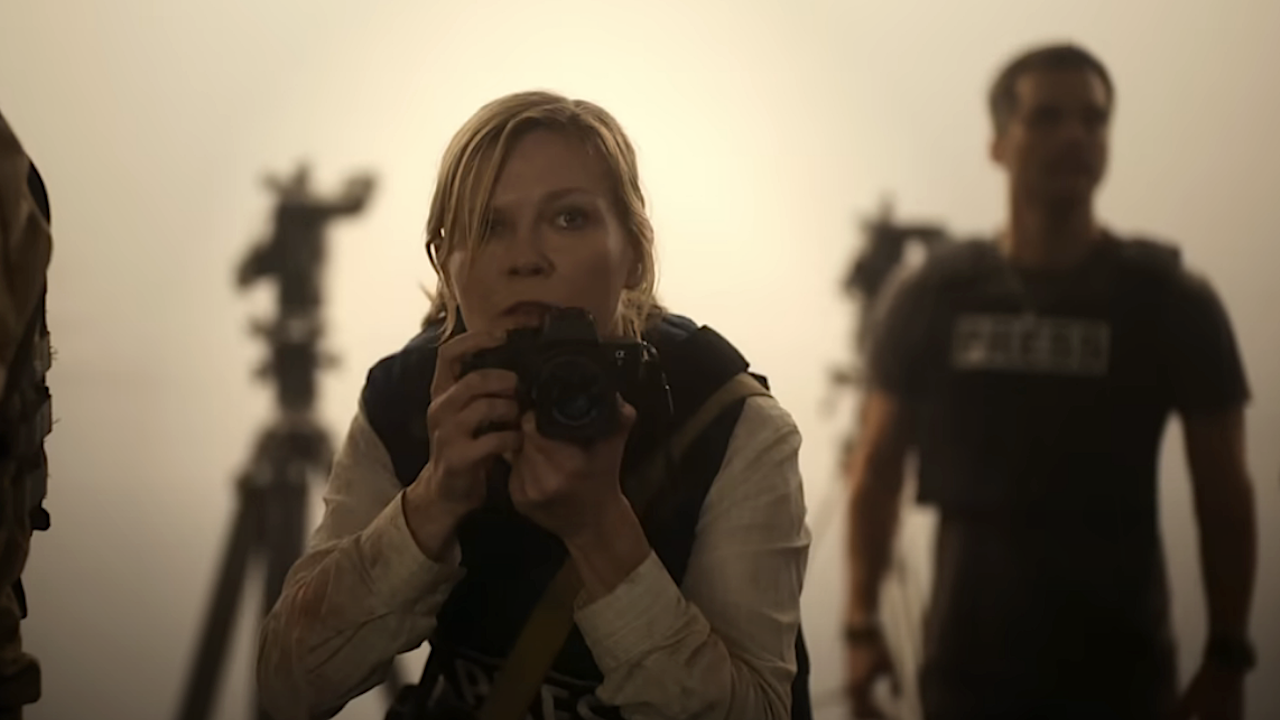
Was Lee’s Death Justified?
When it comes to the first debate over Civil War’s ending, the discussion over Lee’s death was the first hot topic that came to mind. Admittedly, this came from talking with one of my colleagues about the ending, as she didn’t think Lee’s death was justified in terms of the story set up.
Your Daily Blend of Entertainment News
Rather, she thought that the more fitting finale would be seeing Lee’s war-inspired trauma come to a head, with her being left frozen in the hallway while Joel and Jessie move on to cover the story. I can see that point, but something that happened earlier in Civil War has me convinced that Kirsten Dunst’s character earned those tragic final moments.
After the death of fellow party member Sammy (Stephen McKinley Henderson), Lee tells Jessie that the seasoned journalist could have died in a worse manner. My interpretation of that line was that between his advancing age and an implied physical condition that lessened his mobility, Sammy’s death as a hero saving his friends was more of an honorable warrior’s death. When talking about Sammy’s death, Lee was almost calling her own shot in life.
After reading Film Freak Central critic Walter Chaw’s review of Civil War, I’m also convinced that Lee knew she’d die in the field. This line in particular connected with my reading of this event:
Jessie wants to be Lee one day. Lee tries to talk her out of it. Lee, who knows her fate is to be a corpse that someone like Jessie takes snapshots of on her way to the next place where the guardrails holding entropy back have failed.
As a war photographer, you’re exposed to all sorts of adrenaline-fueled moments of inhumanity, constantly scrambling to survive with the story in your hand. In Lee’s eyes, a normal life with illness and domesticity doesn’t cut it. So to some, the "fitting end" to a war correspondent’s life is being cut down in battle, helping tell the stories that might warn others not to let such horrific events happen in their own backyard.
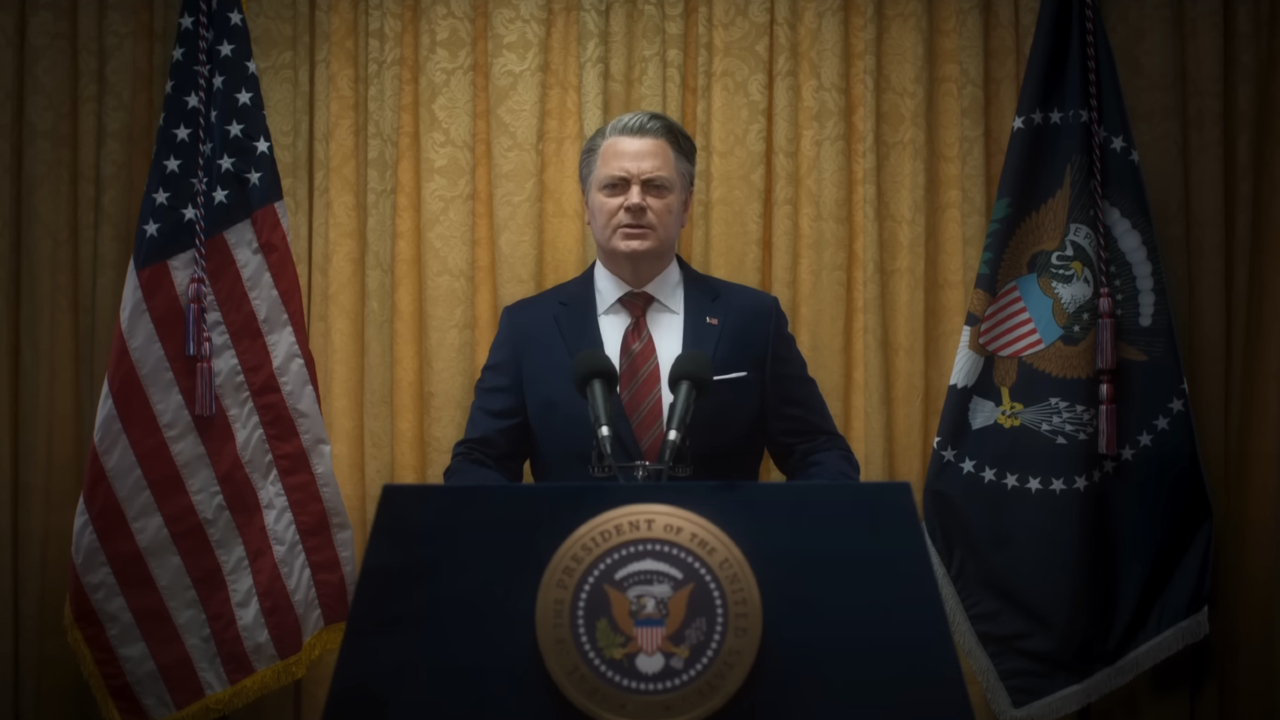
How Should We Feel About The President’s Death?
Perhaps the even more divisive event that seems bound to cause much discussion and debate is the killing of Nick Offerman’s unnamed President character. Admittedly, we don’t really see this character much on screen, as brief appearances bookending the narrative and some audio broadcasts are what we are given to define his character. Well, that and a brilliant Q&A prep sequence between Stephen McKinley Henderson and Wagner Moura.
In a rapid-fire question session on the road, Henderson’s Sammy grills Moura’s Joel on the questions he wants to ask in the President’s first potential interview in 14 months. On top of destroying the 22nd Amendment of the Constitution so that he can serve a third term, the President has also used airstrikes on American civilians and disbanded the FBI.
With all of those acts on his resume, the President sure seems like a dictator, and military might is good at overthrowing dictators. So on face value, offing Mr. Offerman should be something cathartically pleasing. But there are two thoughts that prevent me from totally settling on that viewpoint.
The President’s death, cowardly final words and all, could still be seen as martyrdom by the Loyalist States. Also, with this political beast beheaded, at least three more stand to challenge its place as the ruler of the nation.
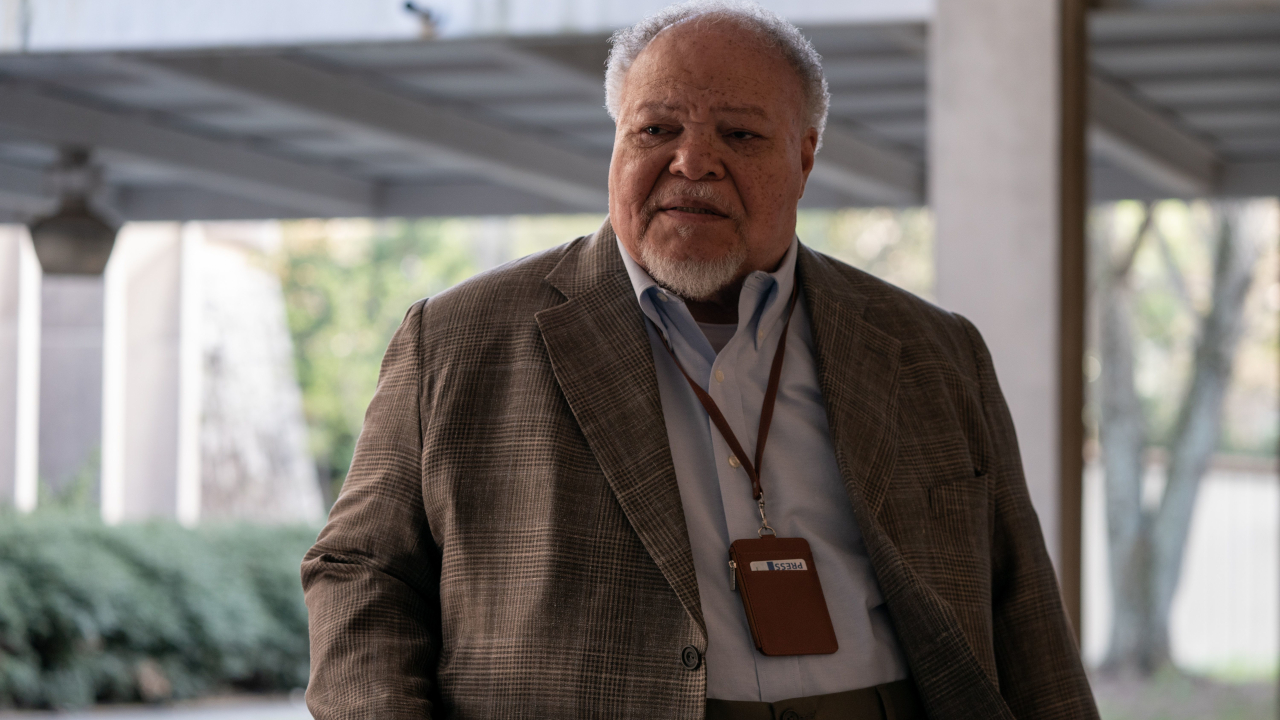
Is Civil War’s Ending Happy By Any Stretch?
The death of Civil War’s president is supposed to be the capstone to this large scale combat epic, and to a point, it succeeds. You would be forgiven to walk out of this movie keyed up on adrenaline and ready to sing its praises. It's when you start to dwell on what actually happened that the dread starts to challenge the notion that this is even a remotely happy ending.
Call it cathartic, cautionary or anything in-between, the quest that Alex Garland’s intrepid journalists set out to accomplish comes to an end. But while just looking at the ending on the surface level is a pretty dour experience, there’s another line of Sammy’s that came up when researching this write-up:
You watch. Soon as D.C. falls, they’ll turn on each other.
“They” are the competing factions of Civil War’s fractured political landscape, as by time the film starts, there are four parties in play. While the Western Forces are the party we follow the most intently through Alex Garland’s narrative, there’s mention of the Florida Alliance as well. To get a better look at why this notion is so frightening, take a look at the map A24 released before the film’s release:
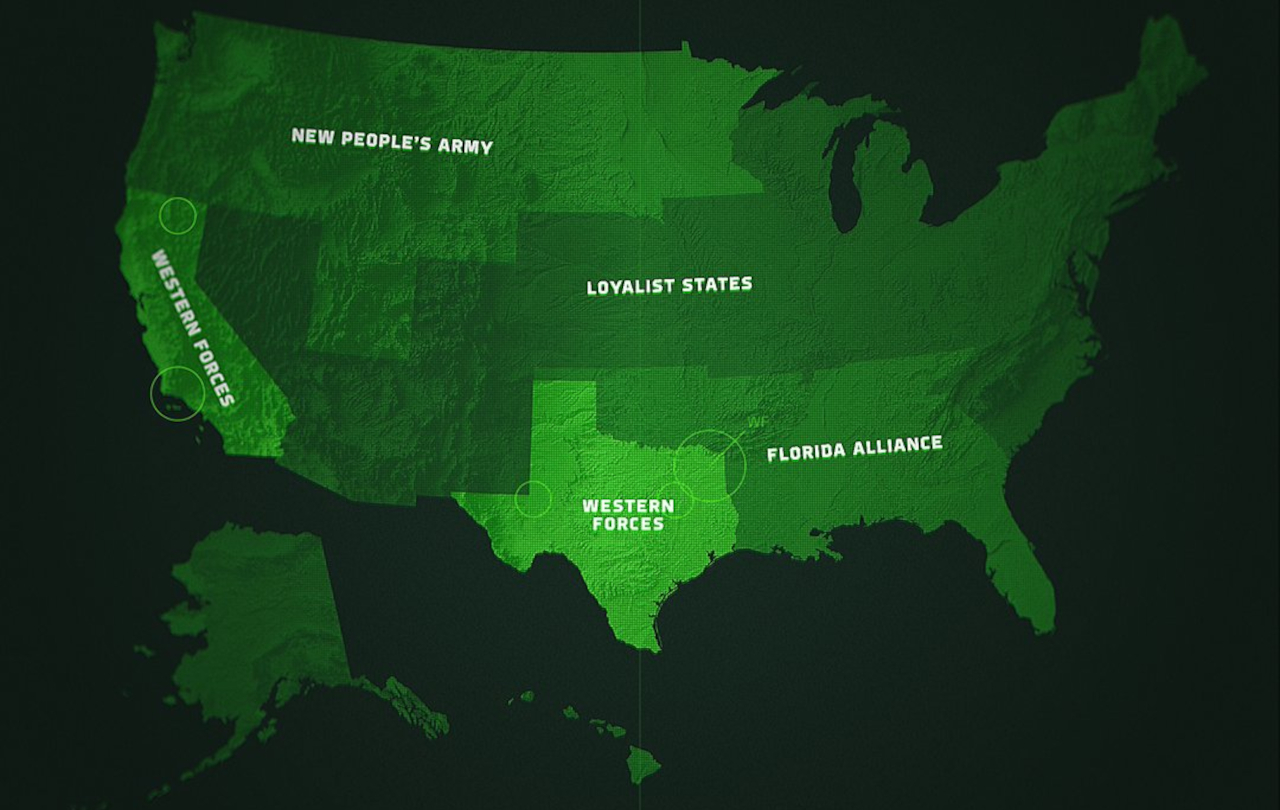
Ready for the ultimate bummer that’s bound to become Debate #3? What did Lee and The President die for in the grand scheme of things? The endgame of Civil War is definitely to topple Nick Offerman’s regime, and that happens clear as crystal. But what’s the next move? Surely the Western Forces would want to keep power, but with three other players in the game, what sort of deal will there need to be in order to unite America again?
Civil War doesn’t exactly call out for a sequel, but at the same time there’s plenty of fertile ground for a follow-up. Part of me thinks that Alex Garland’s next film Warfare might be a secret follow-up to begin with. Or at least, that’s what I’m hoping, especially since Deadline announced he’s on deck to co-direct with Ray Mendoza, Civil War’s military advisor. A potential trilogy that could see follow-ups detailing the way forward, through the eyes of the military and a new governing body, would make for a hell of an ultimate vision.
However, that’s mere speculation on my part, and that’s part of what makes this ending so brilliant. No one needs to agree on whether or not Lee’s death was justified or if the President’s death is actually satisfying. Were there even a consensus reached on this matter, there’s still the factor that 19 states have ceded from the Union, and another battle feels right around the corner.
Should you have read this rundown without seeing Civil War, I still highly recommend this shock and awe spectacle as a theatrical experience. However, knowing what you know now, I challenge you to not only look closer at the ending, but the two acts that transpire beforehand. There’s still plenty to talk about, and we’ve only just started digging into this new Alex Garland parable of power.

Mike Reyes is the Senior Movie Contributor at CinemaBlend, though that title’s more of a guideline really. Passionate about entertainment since grade school, the movies have always held a special place in his life, which explains his current occupation. Mike graduated from Drew University with a Bachelor’s Degree in Political Science, but swore off of running for public office a long time ago. Mike's expertise ranges from James Bond to everything Alita, making for a brilliantly eclectic resume. He fights for the user.
